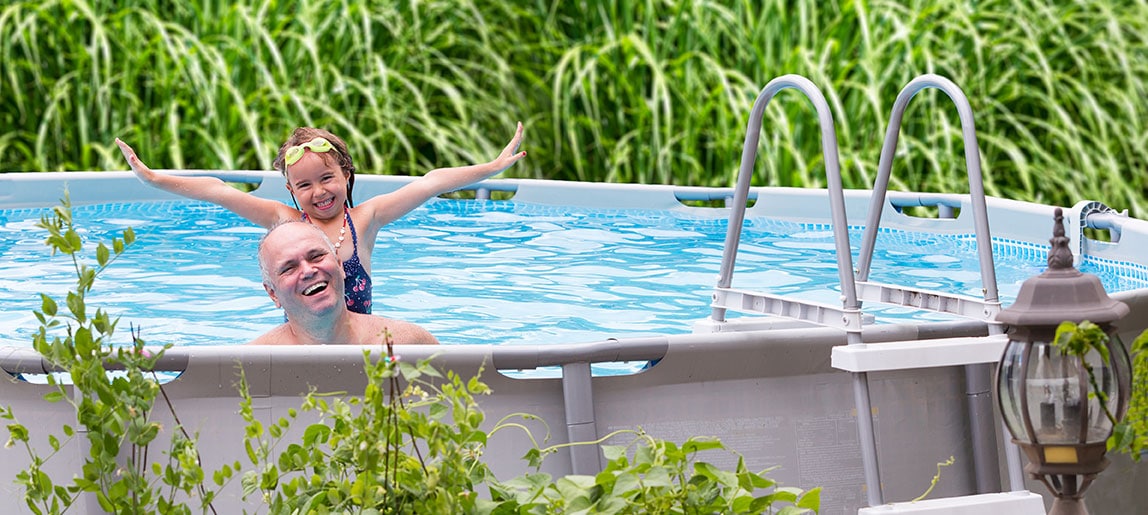
July stands for vacation time, BBQs with friends, hot weather and, of course, dips in the pool. Everybody enjoys diving into a pool on a hot summer day! Whether you already own a pool or just had one installed, Assurances Multi-Risques would like to alert you to the importance of informing your insurer of this fact in order to be able to thoroughly enjoy your pool’s cool waters without a care in the world.
*We’ll be concentrating on above ground pools here, but we’ll be touching on in-ground pools in a future article.
Does your home insurance contract cover your pool?
The answer is no. The Insurance Bureau of Canada’s home insurance exclusion clause concerning pools and other installations is used by most insurance companies. It states that home insurance contracts do not cover the following:
- spas and pools installed outside the home;
- pool and spa equipment, whatever its situation;
- patios and decks surrounding pools and spas that are not attached to the house.
What that means is that an above ground pool is automatically excluded from your home insurance contract.
In order to have your pool or spa included into your home insurance coverage (commonly called a coverage rider in insurance lingo), you must contact your insurance agent or broker.
How are pools covered insurance-wise?
Your pool coverage must include two separate things:
- First, you must make sure that your civil liability coverage is sufficient in case of an incident or an accident involving your pool. Nobody wants to imagine the unimaginable, but the possibility of having someone drown in your pool must be considered;
- Secondly, any damages to your pool must be covered in your contract. Because of our weather conditions, one of the most common claims is due to the pool buckling under the weight of the snow or damages caused by the freeze and thaw cycles. Wind storms, trees falling onto the pool, etc. are also frequent sources of claims.
Whatever your contract, you must remain vigilant regarding the coverage offered for your pool. Indeed, it’s not subjected to a full replacement value the way your house is. Most insurers will offer a 100% replacement value for pools that have weathered less than five winters. After that, the replacement value will depreciate by a certain percentage up to 75% after 10 winters. Therefore, the older your pool is, the less interesting it becomes to insure it regarding its replacement value. Your financial situation and your insurance record could also influence your decision. Contact your insurance agent or broker to check where you stand regarding to the depreciation of your pool as this can vary from one insurance company to another.
In short, contact an independent insurance broker before you dive into your pool for the first time. That way, you will be able to enjoy your new installation for years to come and you will be well protected in case of accident or damage. Also, be sure to respect your municipal bylaws regarding pools. Have a great swim!